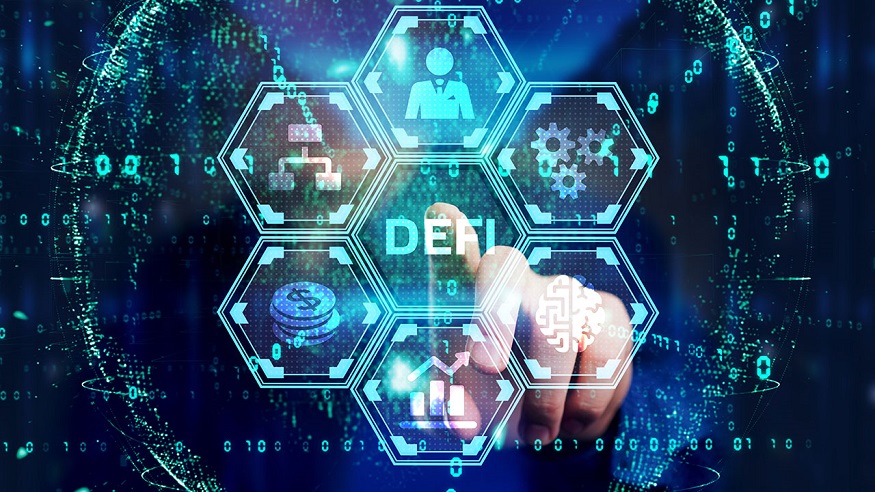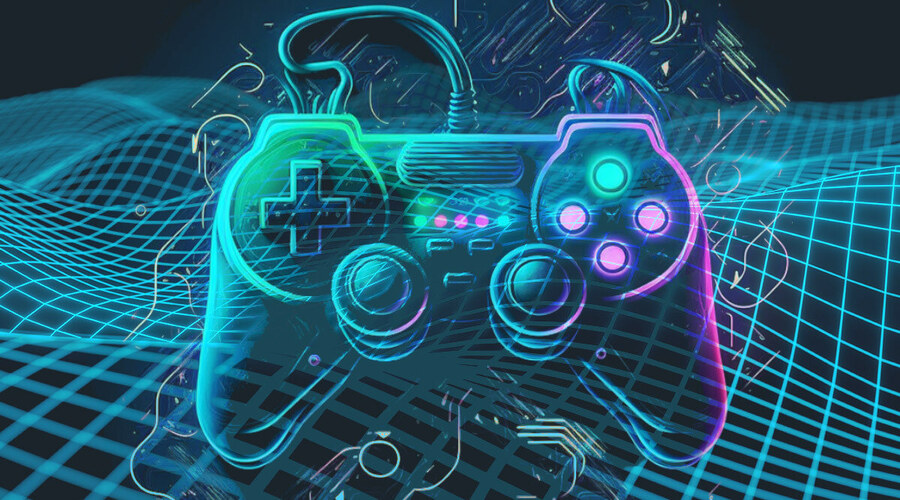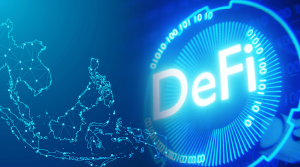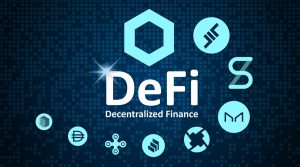Introduction
In recent years, the integration of decentralized finance (DeFi) with blockchain technology has gained significant traction. DeFi offers a new paradigm in the financial landscape, empowering individuals to have greater control over their assets and participate in a more transparent and trustless ecosystem. This article explores the integration of DeFi in blockchain games, combining the exciting possibilities of decentralized finance with the immersive world of gaming.
Understanding DeFi and Blockchain
What is DeFi?
DeFi refers to the application of blockchain technology in traditional financial systems to create an open, permissionless, and decentralized ecosystem. It enables the development of various financial services without the need for intermediaries such as banks or brokers. DeFi platforms leverage smart contracts and decentralized applications (DApps) to provide services like lending, borrowing, decentralized exchanges, and more.
What are Blockchain Games?
Blockchain games are video games built on blockchain technology, where in-game assets, transactions, and ownership are recorded on a distributed ledger. These games offer players true ownership and control over their virtual assets, allowing them to trade, sell, or use them across multiple platforms. Blockchain technology ensures transparency, scarcity, and provable fairness within these game worlds.
The Benefits of DeFi in Blockchain Games

The integration of DeFi in blockchain games brings several advantages, revolutionizing the gaming industry and enhancing player experiences.
1. Financial Interoperability
DeFi enables financial interoperability between different blockchain games and platforms. Players can use their in-game assets as collateral for loans or participate in liquidity pools to earn passive income. The ability to seamlessly transfer assets between games unlocks new possibilities for cross-game collaborations and value creation.
2. Ownership and Asset Control
By leveraging blockchain technology, DeFi in blockchain games ensures true ownership and control of in-game assets. Players have exclusive rights to their virtual possessions, which can be freely traded, rented, or used in various ways. This ownership empowers players, blurring the lines between the virtual and real-world economies.
3. Transparent and Trustless Systems
DeFi introduces transparency and trustlessness into the gaming ecosystem. Through the use of smart contracts, all transactions and operations within blockchain games can be verified on the blockchain. This eliminates the need for players to rely on centralized authorities and fosters a more secure and transparent environment.
DeFi Features in Blockchain Games
1. In-Game Economy and Tokenization
DeFi allows the creation of robust in-game economies by tokenizing virtual assets. Players can earn tokens through in-game activities and use them for various purposes within the game world. Tokenization facilitates value transfer and opens avenues for novel gameplay mechanics, rewarding players for their time and efforts.
2. Decentralized Marketplaces
Blockchain games integrated with DeFi feature decentralized marketplaces, where players can freely trade their in-game assets with other players. These marketplaces provide liquidity and enable players to monetize their gaming achievements. Smart contracts ensure secure and transparent transactions, minimizing the risk of fraud or scams.
3. Yield Farming and Staking
DeFi protocols in blockchain games introduce yield farming and staking mechanisms, allowing players to earn passive income by providing liquidity or locking their assets. Players can participate in decentralized liquidity pools, earn interest, and receive rewards for contributing to the game ecosystem. This incentivizes long-term engagement and investment in the game.
Challenges and Considerations
While the integration of DeFi in blockchain games brings tremendous potential, it also poses certain challenges and considerations.
1. Security and Smart Contract Risks
DeFi platforms rely heavily on smart contracts, which may be vulnerable to security risks and vulnerabilities. Developers must ensure rigorous audits and testing to minimize the potential for hacks or exploits that could result in financial losses for players.
2. Scalability and Gas Fees
The scalability of blockchain networks and high transaction fees, often referred to as gas fees, can impact the user experience within blockchain games. As DeFi gains popularity, scalability solutions like layer-two protocols and sidechains become crucial to mitigate congestion and reduce transaction costs.
3. User Experience and Adoption
To fully harness the benefits of DeFi in blockchain games, user experience and adoption are vital. Simplifying the onboarding process, improving wallet integration, and enhancing the overall gameplay experience can encourage more players to embrace these decentralized gaming ecosystems.
Examples of DeFi in Blockchain Games
Several blockchain games have successfully integrated DeFi features, demonstrating the potential of this fusion:
1. Axie Infinity
Axie Infinity is a blockchain-based game where players can collect, breed, and battle digital pets known as Axies. The game utilizes DeFi protocols to enable players to earn tokens by participating in battles, breeding Axies, and contributing to the game’s ecosystem.
2. Gods Unchained
Gods Unchained is a digital trading card game built on Ethereum. The game incorporates DeFi elements by allowing players to buy, sell, and trade their unique and scarce digital cards on decentralized marketplaces. The ownership and scarcity of these cards are recorded on the blockchain.
3. CryptoKitties
CryptoKitties gained widespread attention as one of the first blockchain games. It allows players to collect, breed, and trade unique digital cats. DeFi elements in CryptoKitties enable players to buy and sell their cats using cryptocurrency, creating a vibrant digital economy centered around these virtual feline companions.
Governance and Community Participation
DeFi in blockchain games introduces a new level of governance and community participation. Through decentralized governance models, players can actively participate in decision-making processes, such as proposing and voting on game updates, economic parameters, or new features. This empowers players to have a direct impact on the evolution and direction of the game, fostering a sense of ownership and community engagement.
Play-to-Earn Opportunities
One of the significant advantages of integrating DeFi into blockchain games is the emergence of play-to-earn opportunities. Players can now earn real-world value by investing their time and skills in the game. Through various DeFi mechanisms like yield farming, staking, or participating in liquidity pools, players can generate income while enjoying the gaming experience. This has opened doors for individuals in regions with limited economic opportunities to earn a livelihood through their gaming activities.
Regulatory and Legal Considerations
The integration of DeFi in blockchain games brings forth regulatory and legal considerations. As these ecosystems involve the trading and exchange of virtual assets, it becomes essential to navigate the legal frameworks surrounding cryptocurrencies, financial activities, and virtual property rights. Developers and players alike need to stay informed about the regulatory landscape and ensure compliance with applicable laws to foster a sustainable and secure environment for blockchain gaming.
NFTs and DeFi
Non-Fungible Tokens (NFTs) play a significant role in the integration of DeFi in blockchain games. NFTs represent unique, indivisible digital assets, such as in-game items or collectibles. By leveraging DeFi protocols, players can utilize their NFTs as collateral for loans, stake them to earn rewards, or participate in decentralized marketplaces to trade their valuable virtual possessions. This synergy between NFTs and DeFi enhances the liquidity and utility of these digital assets, further enriching the gaming experience.
Environmental Impact
The environmental impact of blockchain technology and DeFi in blockchain games has garnered attention. As some blockchain networks rely on energy-intensive consensus mechanisms, concerns arise regarding the carbon footprint associated with these systems. However, efforts are underway to explore more eco-friendly consensus algorithms and sustainable blockchain solutions to mitigate the environmental impact of DeFi-powered blockchain games.
Future Potential
The integration of DeFi in blockchain games marks the convergence of two groundbreaking technologies, unlocking immense possibilities for the future of gaming. As blockchain technology evolves and DeFi protocols become more robust, we can expect innovative gameplay mechanics, cross-game collaborations, and enhanced economic opportunities within virtual worlds. The fusion of decentralized finance and gaming has the potential to reshape the gaming industry, offering players unprecedented control, ownership, and financial rewards.
The Role of Smart Contracts in Blockchain Games
Smart contracts play a crucial role in the integration of DeFi in blockchain games. These self-executing contracts, stored on the blockchain, automatically execute predefined actions when specific conditions are met. In blockchain games, smart contracts enable secure and transparent transactions, enforce the rules of the game, and facilitate the seamless integration of DeFi protocols. By leveraging smart contracts, players can trust that their transactions and interactions within the game are verifiable and tamper-proof.
Community-driven Economies
The integration of DeFi in blockchain games fosters the development of community-driven economies. These economies rely on the participation and collaboration of players to create value and shape the in-game ecosystem. Through decentralized marketplaces, players can buy, sell, and trade assets directly with each other, without intermediaries. This empowers players to have a direct impact on the supply and demand dynamics within the game, driving economic growth and fostering a sense of community ownership.
DeFi Gaming Platforms
DeFi gaming platforms have emerged as centralized hubs that facilitate the integration of DeFi protocols into various blockchain games. These platforms provide a seamless and standardized interface for players to access DeFi features, such as lending, borrowing, or yield farming, across multiple games. By consolidating DeFi functionalities, these platforms simplify the user experience and enable players to navigate the DeFi landscape within the gaming ecosystem more efficiently.
Privacy and Anonymity Considerations
Privacy and anonymity considerations are essential when integrating DeFi in blockchain games. While blockchain technology ensures transparency, some players may prefer to keep their in-game activities private. Developers must strike a balance between transparency and privacy, implementing privacy-enhancing technologies while still maintaining the integrity and security of the game ecosystem. Solutions such as zero-knowledge proofs or selective disclosure mechanisms can provide players with control over the privacy of their in-game transactions and interactions.
Conclusion
The integration of DeFi in blockchain games is reshaping the gaming industry, offering players new opportunities for financial inclusion, ownership, and participation. With the benefits of financial interoperability, ownership of assets, transparent systems, and play-to-earn possibilities, players can immerse themselves in dynamic, decentralized game worlds. However, challenges such as security risks, scalability issues, and user experience must be addressed for widespread adoption. As the fusion of DeFi and blockchain gaming continues to evolve, we can anticipate exciting innovations and transformative experiences that will shape the future of gaming.











